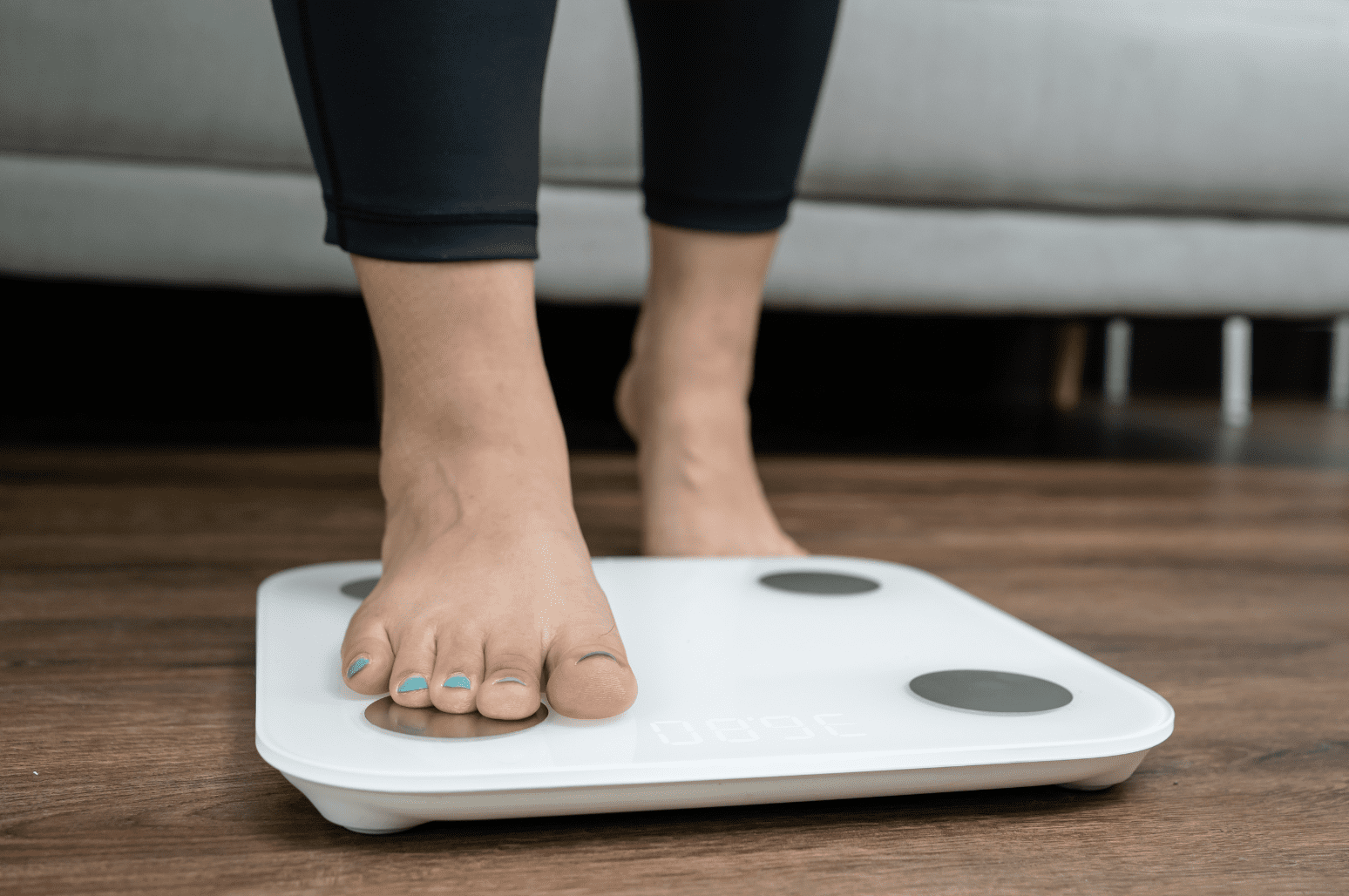
The statistics on eating disorders are startling. Did you know that eating disorders have the highest mortality rate amongst any other psychiatric disorder? While eating disorders can affect anyone, females are disproportionately affected; ladies between 15-24 are 12x more likely to die from anorexia than any other cause of death. Currently, ~70 million people are suffering from an eating disorder. [1] [2] Diets and diet culture is often blamed for the high prevalence of eating disorders but, research suggests the ketogenic diet could actually be helpful. Is it possible going keto could be beneficial in the treatment of eating disorders?

What Are Eating Disorders?
The term eating disorders is a broad classification for patterns of disordered eating and includes anorexia nervosa, bulimia nervosa, purging disorder, avoidant food disorder, pica, orthorexia nervosa, rumination syndrome, muscle dysmorphia, body dysmorphia, feeding disorder, night eating syndrome, and general eating disorders.
While disordered eating may not seem deadily on the surface, obviously based on the shocking statitics behind their high mortality rate, these disorders take a serious toll on the body. Eating disorders can cause muscle atrophy (including the heart), electrolyte imbalances (can lead to arrhythmias and heart failure), reduced metabolic rate, infections, constipation, damaged bowels and intestinal obstruction, stomach rupture, sore throat, malnutrition, pancreatitis, parotitis, bezoars, intestinal, stomach, and esophagus perforations, fainting, dizziness, sleep apnea, neuropathy, decreased hormones levels, disruption to menstruation, osteopenia, type II diabetes, hair loss or lanugo, and more. [3] [4]
What about Keto and Eating Disorders?
While research is limited on the relationship between the ketogenic diet and eating disorders, some early studies do suggest that it could actually be beneficial. The metabolic state of ketosis mimics the body’s starvation response, which could be helpful to those who suffer from anorexia nervosa or any other eating disorder that seeks out a starvation feeling/ food depreivation.
The prevailing theory behind using keto for eating disorders is based on the starvation response associated with ketone production mimicing the anxiolytic feeling an individual might receive from starving themselves. This provides the feeling that someone suffering from an eating disorder may crave, without actually risking someone’s health . [5]
Furthermore, case studies have shown individuals who suffer from an eating disorder may benefit from a more restrictive diet. Since the general guidelines to keto are so straight forward, i.e. limit carb intake, many people have reduced food anxiety because they know exactly what they can eat. Strong anecdotal evidence of a reduction in food-related anxiety, feelings of guilt, and binging supports the use of a keto for eating disorders. [6]

Overcoming a Lifetime of Disordered Eating
Are you interested in reading more about someone who used the ketogenic diet to treat their eating disorders? Read more about Chef Debbie Lee and watch her video on how she developed a healthy releationship with food and eating habits.
References
Arcelus J, et al. Mortality rates in patients with anorexia nervosa and other eating disorders. Archives of General Psychiatry, 68(7):724-731.
Insel, T. (2012, February 24). Spotlight on Eating Disorders.
Eating Disorders. (n.d.).
Moore CA, Bokor BR. Anorexia Nervosa. [Updated 2019 May 14]. In: StatPearls [Internet]. Treasure Island (FL): StatPearls Publishing; 2020 Jan-.
Scolnick B. Ketogenic diet and anorexia nervosa. Med Hypotheses.
Carmen, M., Safer, D.L., Saslow, L.R. et al. Treating binge eating and food addiction symptoms with low-carbohydrate Ketogenic diets: a case series. J Eat Disord 8, 2 (2020).










This article addresses eating disorder recovery as though it’s done by simply returning the body to a “normal” weight and meeting nutrition needs. An eating disorder is so much more than that – though recovery must start somewhere, and maybe a keto diet could be a stepping stone in recovery to meeting the body’s needs so we can feel more like ourselves. As a mental illness that originates from diet culture itself, subscribing to yet another fad diet will never lead to true recovery from an eating disorder. We must strive for complete liberation from all rigidity and obsession around food and body shape/size.
Thank you for your comment. Though we don’t feel that keto fits within the traditional definition of a “FAD” diet, we agree that it’s a process as outlined in the article. The goal is to eat in a way that makes you mentally, physically, and emotionally feel good and studies/research show that keto can be one of those ways to help.
For someone like me with really bad PCOS and Insulin Resistance, even in recovery for OSFED, Orthorexia, and Over-Exercise/Exercise Addiction, I have had to stay on keto. If I eat sugar, my body gets physically ill immediately after and my blood sugar spikes. I have gone through this my whole life, it is nothing new. If I were to start eating regular sugar and carbs in recovery, my physical pain and symptoms would be tenfold without question. It’s already uncomfortable enough both physically and emotional to go through the recovery process, I dont need sugar to set me back and make me worse. I just make sure that I eat as much keto food as possible to meet my minimum calories for recovery. Calorically, some keto foods are more, but many are less than regular foods. I dont count carbs, I just make sure I’m not eating high-glycemic foods by following what foods are keto appropriate and from all the food groups. Even though it’s keto, yes, there can still be adequate carbs, especially if you stick to nuts and nut butters, as often prescribed for ED recovery. And even if you eat a lot, nuts and nut butters (natural, no sugar) will not spike blood sugar.
I cant tell you how many ED support groups I have been kicked out of for this logic. The thing is, I dont recommend keto for all people, just myself because I know my diseases and my body. And it may be worth looking into for others who have the same diseases (severe PCOS and Insulin Resistance) and are suffering from EDs. Not everything works for everyone. I’m so tired of being shunned because of this. I have had to resort to self-recovery because RDs and Therapists refuse to work with me because I insist on eating keto for the rest of my life. ED recovery has been very hard and very lonely because of it.
I did lots of research before I chose to go keto 7 years ago, and it IS sustainable if done correctly with balance and equality with your foods. I have had my EDs for about 4 -5 years. And it was Intermittent Fasting that rolled me into them, not the keto. I have spent much time and therapy trying to pinpoint this. With PCOS and Insulin Resistance, my body is already in a semi-state of starvation. Once I implemented IF, my body went into true starvation. I stopped losing weight and then exercised harder to make up for it, it still didn’t work, so then I tried to severely cut my calories to close the gap even further. In my 2 -3 years before EDs of just keto, my weight went down and then pretty much stayed the same, once the EDs came into play, my weight was up and down every 6 – 12 months by 30 – 80 lbs. That is not healthy for a body or anybody. It would have been better for me to just live at what my weight stopped at when I was doing just keto without trying IF and then killing myself with exercise and unrealistic caloric deficit. Keto is not the problem here- at least not for me.